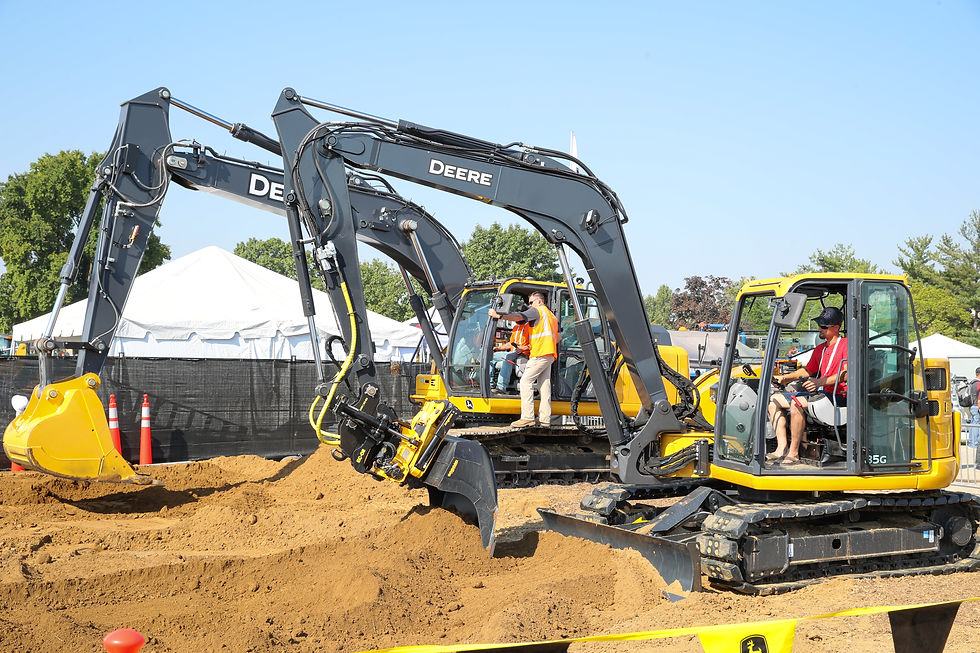Electric Compact Construction Equipment Market to See Rapid Growth
- Arizona Contractor & Community
- May 3, 2023
- 2 min read
AYFIELDALASTAIR HAYFIELD
By Alastair Hayfield
Compact construction equipment (mini and small excavators, compact track loaders, and skid steers) is leading the charge toward electrification in the off-highway market around the globe. The market for battery electric compact construction equipment will be nearly 100 times bigger in 2030 than it is now.

What is driving this? First, these are the ‘easiest’ machines to electrify. The relatively low power requirements make engineering electric versions easier (and cheaper) than their larger siblings.
Second, because of their size, these types of machines can be used indoors – in basements or demolition work – so making them emission free is a health benefit.
Third, the lower noise level from electric machines versus diesel machines makes them a much better fit for work in urban areas – particularly residential areas – where they can operate for extended hours causing less nuisance for residents.

Although the leading countries for market adoption of battery electric vehicles are in Western and Northern Europe, market volumes are going to be greatest in those countries with the largest overall markets for construction equipment. That means that largest markets for battery electric compact equipment in 2025 will be China, the USA, Germany, the UK and the Netherlands. If the USA can accelerate its policy landscape and provide more incentives, it could even overtake China by the end of the decade.
We’re often asked: what could make the market speed up adoption of battery electric machinery? Well, the answer is relatively simple – better incentives and clearer government policy. There is still a gap in total cost of ownership (TCO) between a battery electric excavator and its diesel equivalent. Although the gap is narrowing and will become positive in the mid-term, incentives that help offset the higher cost of battery electric machinery will speed up adoption.
Furthermore, there is very little clear government policy related to battery electric construction machinery. If more countries and cities announced plans to phase out diesel machinery it would allow fleets to invest in the new technology, giving manufacturers and suppliers the confidence of greater volumes, helping them to reduce prices.








Comments